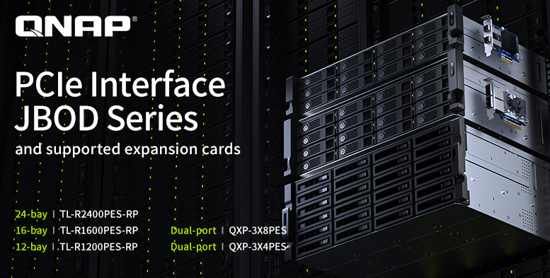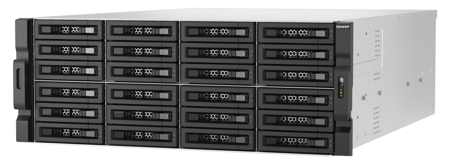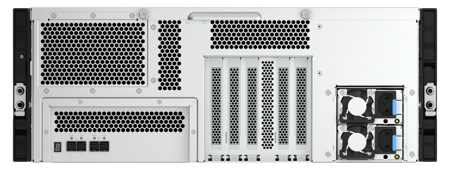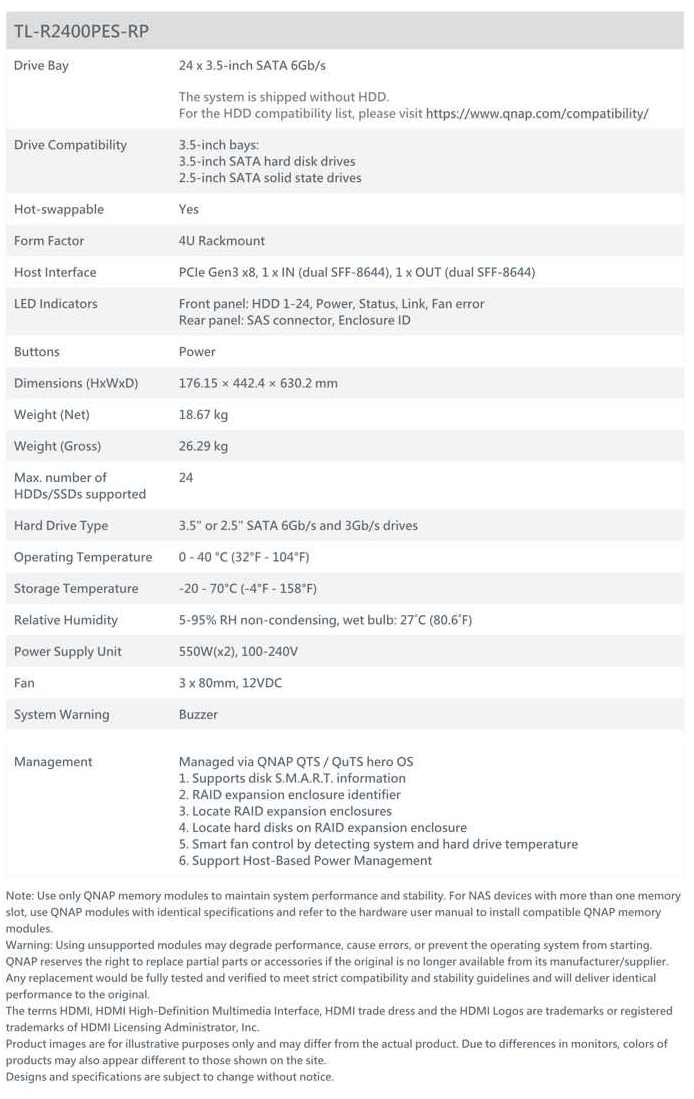Qnap 24-Bay TL-R2400PES-RP PCIe Gen 3 x8 4U JBOD System
Petabyte-scale expansion supporting SATA drives and providing up to 64Gb/s data transfer
This is a Press Release edited by StorageNewsletter.com on March 11, 2024 at 2:02 pmQnap Systems, Inc. launched the PCIe JBOD storage enclosure TL-R2400PES-RP, featuring PCIe Gen 3 x8, and providing up to 64Gb/s data transfer.
Following the release of 12 and 16-bay models of the TL-Rx00PES-RP PCIe JBOD series, the company extends the series lineup by introducing the 24-bay 4U rackmount TL-R2400PES-RP model.
Users can expand existing NAS storage volumes to petabyte-class by connecting multiple TL-Rx00PES-RP series JBODs, without requiring RAID-rebuilding on the host NAS. The series uses SATA drives, allowing businesses to choose from a range of enterprise HDDs. This series is for businesses who want to archive/backup virtualization applications, surveillance recordings, multimedia, and other large data.
The eries power on/off is linked with the host NAS, which helps reduce hardware management tasks for IT staff. Storage expansion cards QXP-3X8PES (PCIe Gen 3 x8) or the QXP-3X4PES (PCIe Gen 3 x4) are required for the NAS to scale up using TL-Rx00PES-RP series expansion enclosures.
TL-R2400PES-RP 24-bay JBOD system front and rear
TL-Rx00PES-RP series key specs
|
Model name |
|||
|
Drive bays per unit |
24 |
16 |
12 |
|
Max. number of connected JBOD units (*) |
12 |
12 |
12 |
|
Max. number of HDDs (*) |
288 |
192 |
144 |
|
Max. capacity (**) |
4.1PB |
2.9PB |
2.0PB |
QXP-3XxPES PCIe expansion cards key specs
|
Model name |
||
|
Expansion ports |
2 channels ( 1 x 2 SFF-8644 connectors ) |
2 channels ( SFF-8644 connectors ) |
|
Interface |
PCIe Gen 3 x8 |
PCIe Gen 3 x4 |
|
Supported cables |
CAB-PCIE10M-8644-8X special cables |
CAB-PCIE10M-8644-4X special cables |
The TL-R2400PES-RP JBOD and companion expansion cards are available.
(*) Actual number of expansion units may depend on the host NAS. Always consult the compatibility list before purchasing.
(**) Qnap calculated the effective capacity assuming RAID 60 with 22TB hard drives, PB-to-PB conversion, and using storage utilization processes such as pool over-provisioning.


















 Subscribe to our free daily newsletter
Subscribe to our free daily newsletter

